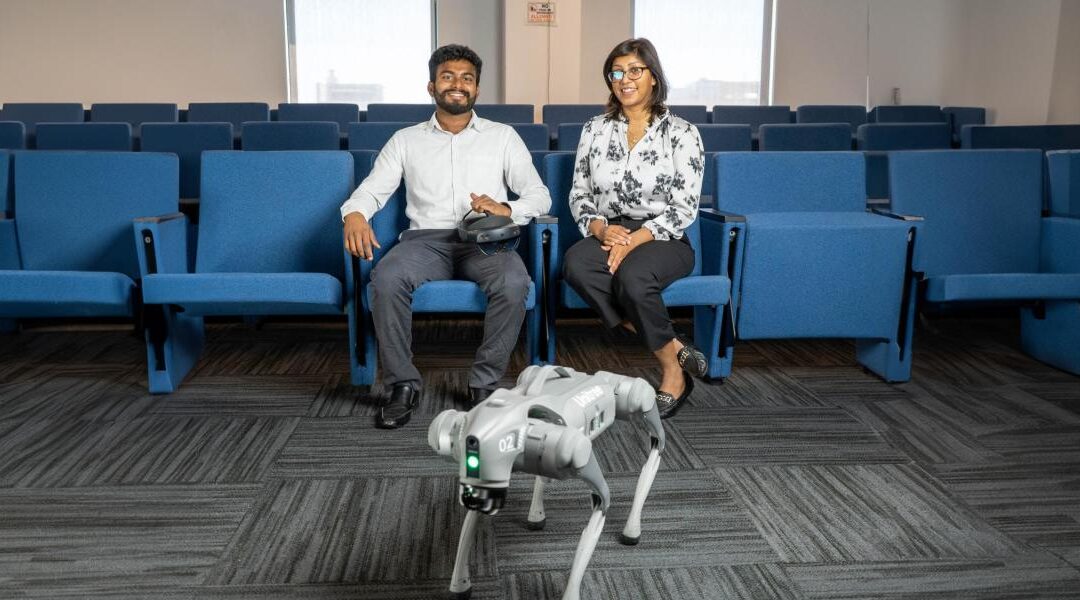An international collaboration seeks to innovate the future of how a mechanical man’s best friend interacts with its owner, using a combination of AI and edge computing called edge intelligence. The project is sponsored through a one-year seed grant from the Institute for Future Technologies (IFT), a partnership between New Jersey Institute of Technology (NJIT) and Ben-Gurion University of the Negev (BGU).
Assistant Professor Kasthuri Jayarajah in NJIT’s Ying Wu College of Computing is researching how to design a socially assistive model of her Unitree Go2 robotic dog that will dynamically adapt its behavior and nature of interactions based on the characteristics of the people with whom it interacts. The overarching project goal is to make the dog come “alive” by adapting wearable-based sensing devices that can detect physiological and emotional stimuli inherent to one’s personality and traits, such as introversions, or transient states, including pain and comfort levels.
The invention will have an impact on home and healthcare settings in battling loneliness in the elderly population and be an aid in therapy and rehabilitation. Jayarajah’s initial work where robotic dogs understand and respond to gestural cues from their partners will be presented at the International Conference on Intelligent Robots and Systems (IROS) later this year. To read the full story.

